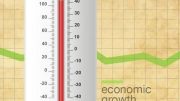
Economic inequality can’t be attributed solely to the poor making bad decisions or the rich making good ones, as poor decision-making is consistent across income groups. The study, involving almost 5,000 participants across 27 countries, suggests that societal economic environments and scarcity, rather than cognitive biases, drive financial decisions among low-income individuals.
A global study led by a researcher at Columbia University Mailman School of Public Health and published in the journal Scientific Reports reveals that economic disparities at a societal level can’t be attributed solely to the poor making bad choices or the wealthy making good ones. Poor decisions were the same across all income groups, including for people who have overcome poverty.
Despite the escalating economic inequality within nations, strategies to combat it have largely fallen short, especially those centered around behavioral methodologies. It has been frequently insinuated – but not empirically verified until this study – that the decision-making habits of those in the lower income brackets might hinder the effectiveness of behavioral interventions aimed at improving upward economic mobility.
The study is based on online surveys in 22 languages with close to 5,000 participants from 27 countries in Asia, Europe, North America, and South America. Decision-making ability was measured through 10 individual biases, including (1) temporal discounting, not preferring immediate funds over larger future gains; (2) overestimation, or thinking you are better than you are at making decisions; (3) over-placement, or thinking you are better than the average person at making decisions; and (4) extremeness, or taking the “middle option” simply because it seems safer than the highest or lowest.
Taken along with related work showing that temporal discounting is tied more to the broader societal economic environment rather than individual financial circumstances, the new findings are a major validation of arguments stating that poorer individuals are not uniquely prone to cognitive biases that alone explain protracted poverty.
“Our research does not reject the notion that individual behavior and decision-making may directly relate to upward economic mobility. Instead, we narrowly conclude that biased decision-making does not alone explain a significant proportion of population-level economic inequality,” says first author Kai Ruggeri, Ph.D., assistant professor in the Department of Health Policy and Management at Columbia Public Health.
“Low-income individuals are not uniquely prone to cognitive biases linked to bad financial decisions. Instead, scarcity is more likely a greater driver of these decisions,” Ruggeri adds.
Reference: “The persistence of cognitive biases in financial decisions across economic groups” by Kai Ruggeri, Sarah Ashcroft-Jones, Giampaolo Abate Romero Landini, Narjes Al-Zahli, Natalia Alexander, Mathias Houe Andersen, Katherine Bibilouri, Katharina Busch, Valentina Cafarelli, Jennifer Chen, Barbora Doubravová, Tatianna Dugué, Aleena Asfa Durrani, Nicholas Dutra, Eduardo Garcia-Garzon, Christian Gomes, Aleksandra Gracheva, Neža Grilc, Deniz Mısra Gürol, Zoe Heidenry, Clara Hu, Rachel Krasner, Romy Levin, Justine Li, Ashleigh Marie Elizabeth Messenger, Melika Miralem, Fredrik Nilsson, Julia Marie Oberschulte, Takashi Obi, Anastasia Pan, Sun Young Park, Daria Stefania Pascu, Sofia Pelica, Maksymilian Pyrkowski, Katherinne Rabanal, Pika Ranc, Žiga Mekiš Recek, Alexandra Symeonidou, Olivia Symone Tutuska, Milica Vdovic, Qihang Yuan, and Friederike Stock, 26 June 2023, Scientific Reports.
DOI: 10.1038/s41598-023-36339-2
The research was supported in part by the National Science Foundation and by Undergraduate Global Engagement at Columbia University. Additional support was provided to individual researchers from the Columbia University Office of the Provost, Masaryk University Centre for International Cooperation, and the Benjamin A. Gilman International Fund from the United States Department of State. This research was funded in part, by the UKRI. Co-authors on the study were primarily from two programs aimed at creating opportunities for students and early career researchers from all backgrounds around the world – the Junior Researcher Programme and the Global Behavioral Science initiative (GLOBES) at Columbia.









I am reminded of a remark attributed to Napoleon. Upon his general staff recommending the promotion of a new officer, he replied, “I don’t care how good he is. Is he lucky?”
How can you learn anything useful from a study that takes 5,000 people from 27 countries in Asia, Europe, North America, and South America? Where people have vastly different cultures, traditions, Values and concepts of poor/quality decision making. Such a small sample size is a joke. Maybe 5,000 people, in 500 different groups across 27 countries, you might have a useful study.